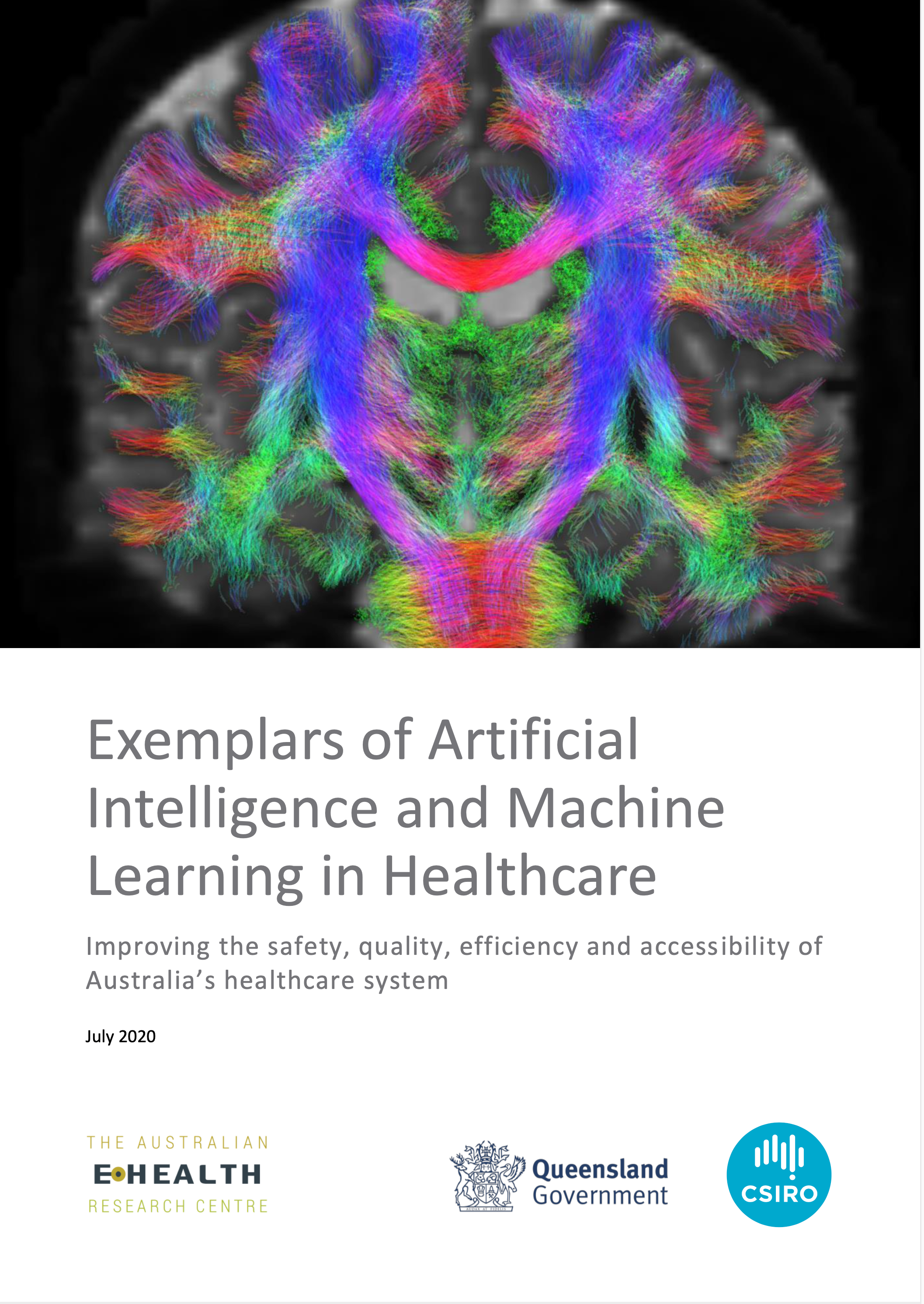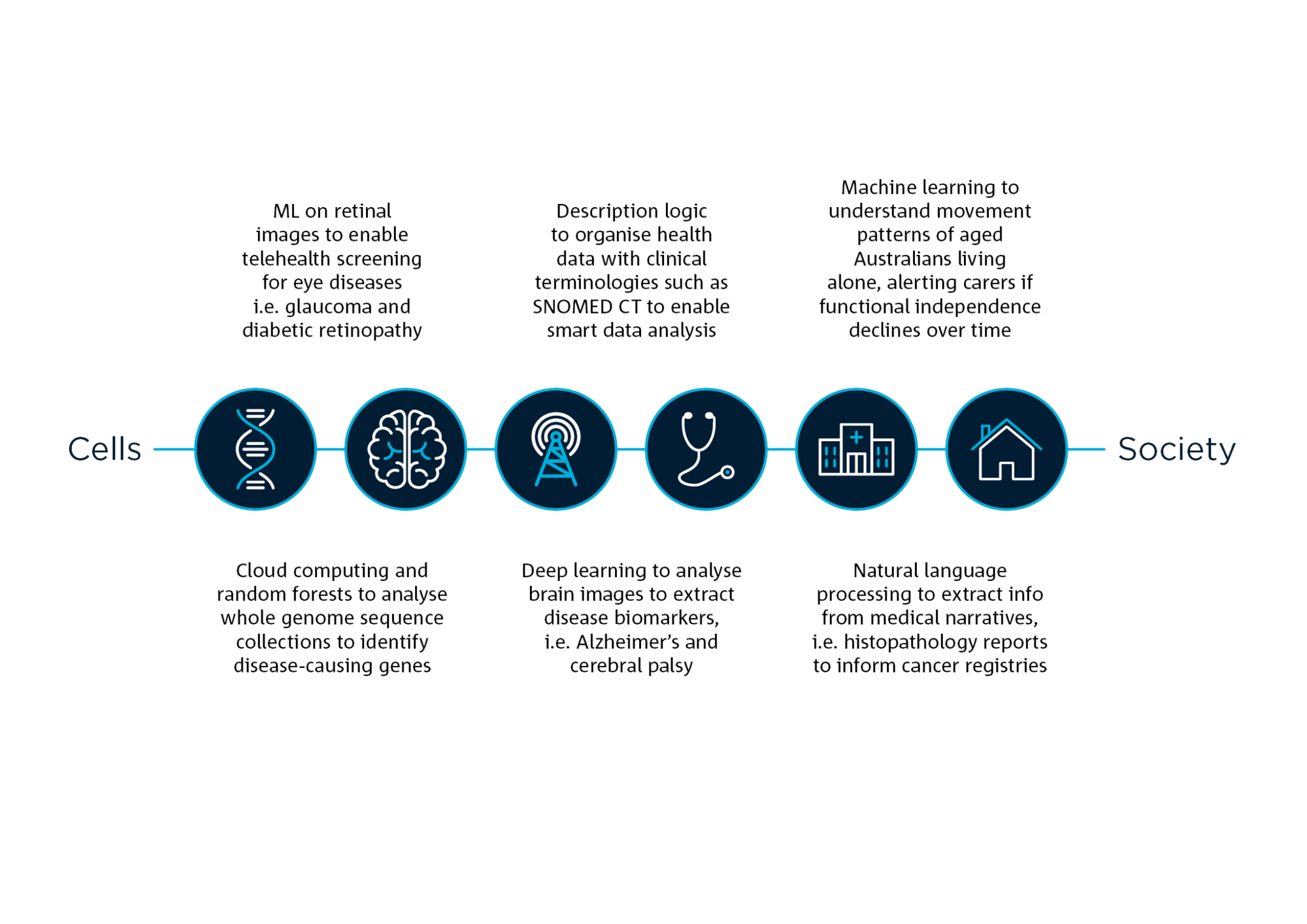The Australian E-Health Research Center (AEHRC), which the Transformational Bioinformatics Group is part of, has just published a report that outlines how our AI techniques are powering digital health: from understanding whole genome sequences to enabling clinical decision support, determining patient risk prediction, understanding older people’s functional wellbeing and more.
Read the full report, Exemplars of Artificial Intelligence and Machine Learning in Healthcare (PDF).

Applying artificial intelligence and machine learning to healthcare
The AEHRC's 100+ scientists and engineers collaborate closely with government and industry to tackle the key challenges of 21st century healthcare, and most of our solutions involve the skilled application of artificial intelligence (AI) and machine learning (ML) techniques. AI depends on data, and the quality of the data used to train AI models or used in AI-based analysis directly affects the quality of downstream tasks.

In health, AI techniques are often described in these categories:
- Knowledge representation and reasoning: how we represent or classify information in a way that enables us to infer (new) knowledge.
- Imaging and vision: analysing images or videos for insights into the cause or impact of medical conditions.
- Human language understanding: extracting meaning from, searching, summarising and classifying natural communication.
- Predictive analytics and data-driven intelligence: extracting insights from existing, often large, datasets.
From genomic engineering to independent living, the Australian e-Health Research Centre is using artificial intelligence techniques and machine learning approaches to overcome the challenges facing the healthcare system and improve health service delivery to Australians.
Visit https://aehrc.com/ for collaboration opportunities.


